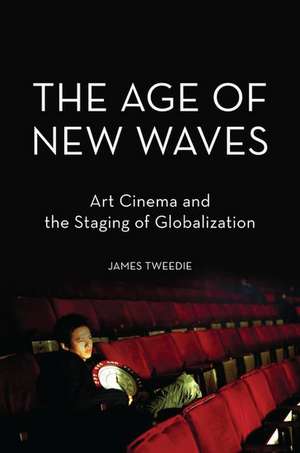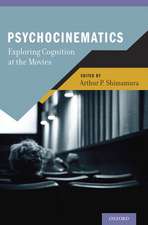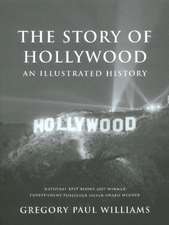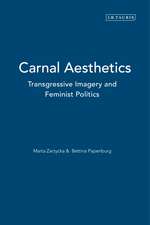The Age of New Waves: Art Cinema and the Staging of Globalization
Autor James Tweedieen Limba Engleză Paperback – 19 sep 2013
| Toate formatele și edițiile | Preț | Express |
|---|---|---|
| Paperback (1) | 299.12 lei 32-37 zile | |
| Oxford University Press – 19 sep 2013 | 299.12 lei 32-37 zile | |
| Hardback (1) | 835.05 lei 32-37 zile | |
| Oxford University Press – 19 sep 2013 | 835.05 lei 32-37 zile |
Preț: 299.12 lei
Preț vechi: 323.89 lei
-8% Nou
Puncte Express: 449
Preț estimativ în valută:
57.24€ • 59.88$ • 47.55£
57.24€ • 59.88$ • 47.55£
Carte tipărită la comandă
Livrare economică 24-29 martie
Preluare comenzi: 021 569.72.76
Specificații
ISBN-13: 9780199858309
ISBN-10: 0199858306
Pagini: 380
Ilustrații: 53 halftones
Dimensiuni: 155 x 231 x 28 mm
Greutate: 0.57 kg
Editura: Oxford University Press
Colecția OUP USA
Locul publicării:New York, United States
ISBN-10: 0199858306
Pagini: 380
Ilustrații: 53 halftones
Dimensiuni: 155 x 231 x 28 mm
Greutate: 0.57 kg
Editura: Oxford University Press
Colecția OUP USA
Locul publicării:New York, United States
Recenzii
The problem of the so-called 'new waves' is one that concerns cultural history and periodization generally, and not merely recent film history; nor is it exactly the same as that of 'avant-gardes', even though the two are related. James Tweedie's analysis of the French original is stimulating, but it is his study of the Chinese (and Taiwanese) versions that is truly revealing and I may even say indispensable.
In The Age of New Waves, James Tweedie takes discrete new wave cinemas from France to Taiwan out of the local contexts that produced them and into which they are too frequently confined, and makes a case for understanding the new wave as a global phenomenon. The result is a brilliant analysis that contributes to national as well as international cinema studies, while rethinking key aspects of both. Tweedie's book itself represents a new wave of scholarship on national cinemas in the world.
In The Age of New Waves, James Tweedie takes discrete new wave cinemas from France to Taiwan out of the local contexts that produced them and into which they are too frequently confined, and makes a case for understanding the new wave as a global phenomenon. The result is a brilliant analysis that contributes to national as well as international cinema studies, while rethinking key aspects of both. Tweedie's book itself represents a new wave of scholarship on national cinemas in the world.
Notă biografică
James Tweedie is Associate Professor of Comparative Literature and a member of the Cinema Studies faculty at the University of Washington.













